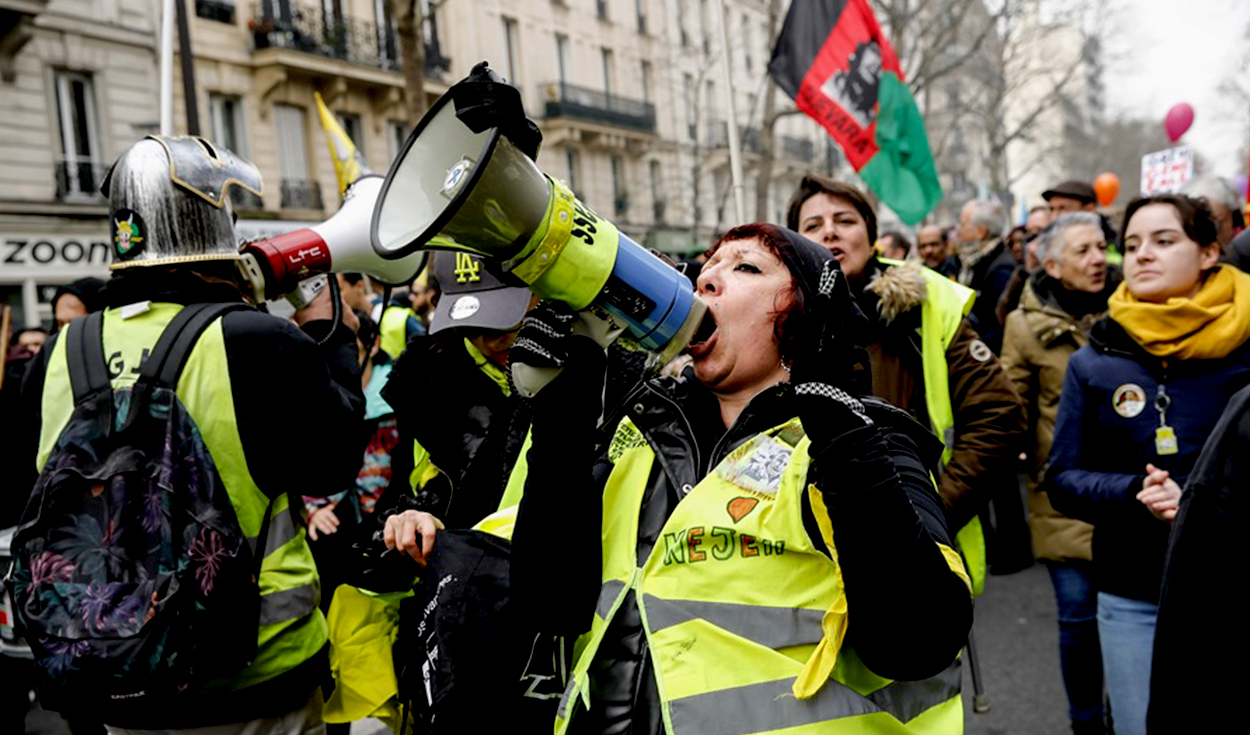
The Government of the French President, Emmanuel Macronreceived this Saturday, March 11, an oxygen balloon with the support in the Senate for his unpopular pension reform, while the protests in the streets called by the unions lost strength. But the bill still has a tough parliamentary home stretch to go.
“The party is not over,” stressed Laurent Berger, general secretary of the French Democratic Confederation of Labor (CFDT), in an interview on BFMTV on Sunday.
The French trade union organizations are far from giving up the battle to knock down the reform, whose main axis is the delay of the minimum retirement age, and they hope to revalidate their bet on the next 15, with a new day of national protests.
It will be, in total, the eighth since the Government revealed the details of its initiative to change access to retirement, last January. The date, moreover, is not accidental, but coincides with the next key stage of the project at the parliamentary level.
Which are the next steps?
That day, a mixed joint commission made up of seven senators and seven deputies must meet to agree on a common text, which takes into account the latest modifications and which must then be validated again by both chambers.
The process in the working group is not presented as a great stumbling block for macronism, that he will be well represented along with his main partners in the enterprise of reforming pensions by the conservative bloc of Los Republicanos (LR).
The president of this party that embodies the classic right, Éric Ciotti, published an opinion column this Sunday in the Journal du Dimanche defending the need to reform the system and explaining that his people will continue to act as “useful opposition.”
Once a joint version of the text is reached, the proposal will return to the Senate and the National Assembly from March 16. Obtaining new support from this chamber, which on March 12 adopted the reform by 195 votes in favor and 112 against, is not expected to be complicated either.
The National Assembly, however, presents itself as a much more complicated scenario, since the pro-government bloc, even maintaining the support of LR, would achieve a very tight absolute majority.
If it does not obtain the necessary support in the National Assembly, the French government would find itself at a serious crossroads: drop the project that has become its great flag of the political course or force approval without submitting it to the approval of the deputies.
The final vote would be possible on March 16 and the maximum period to approve the reform is until March 26, at the end of the day.
The main axis of the initiative promoted by Macron is to delay the minimum retirement age by two years, from the current 62 to 64, but also accelerate the entry into force of the increase in the contribution period —up to 43 years— to receive the full pension.
The Government defends the changes as the only feasible way to guarantee the financial balance of the system for the horizon of 2030, since, if nothing were done, it estimates that in ten years a deficit of close to 150,000 million euros would accumulate. .
Source: Larepublica
Alia is a professional author and journalist, working at 247 news agency. She writes on various topics from economy news to general interest pieces, providing readers with relevant and informative content. With years of experience, she brings a unique perspective and in-depth analysis to her work.












